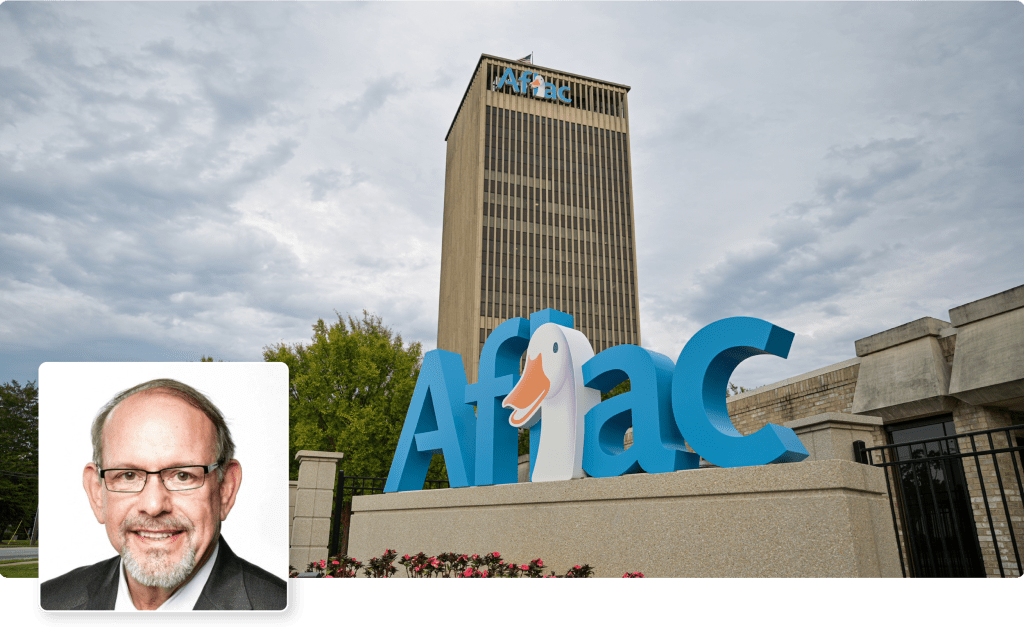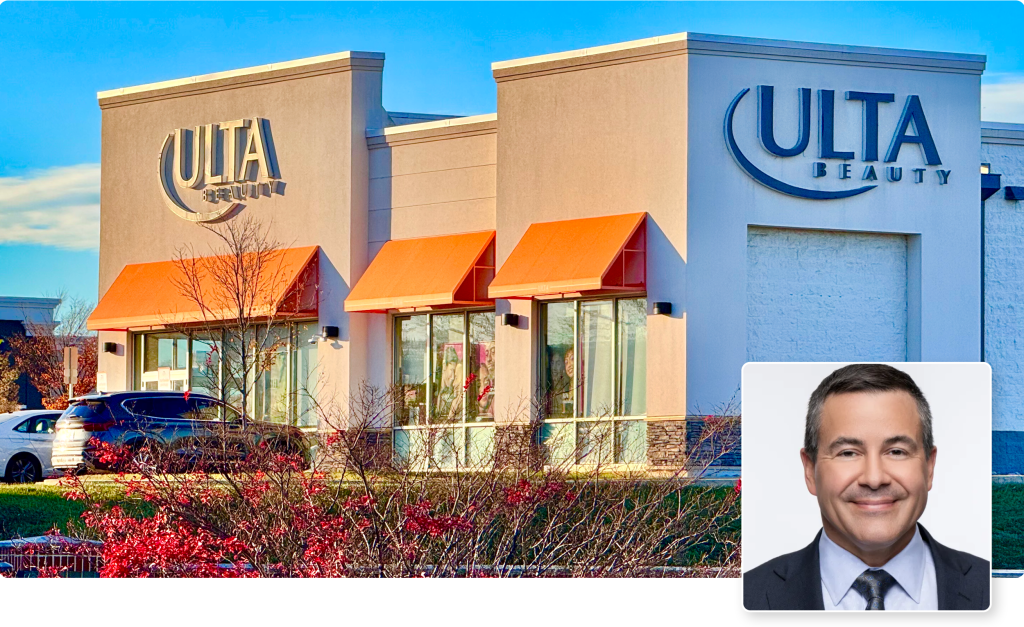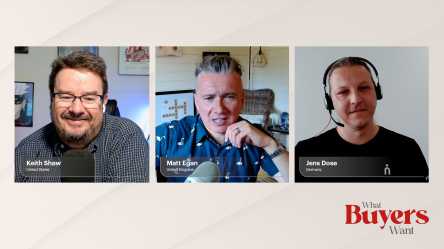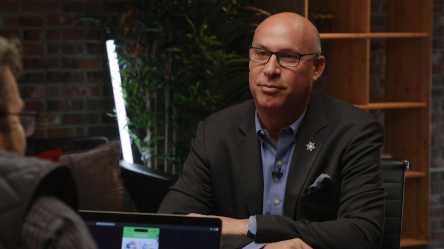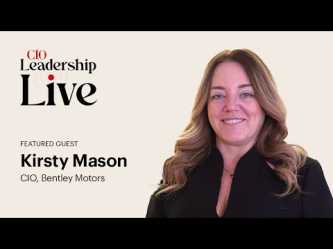From improving customer care to future-proofing the business, 2025’s award-winning projects for IT innovation and leadership demonstrate IT’s transformational proposition.
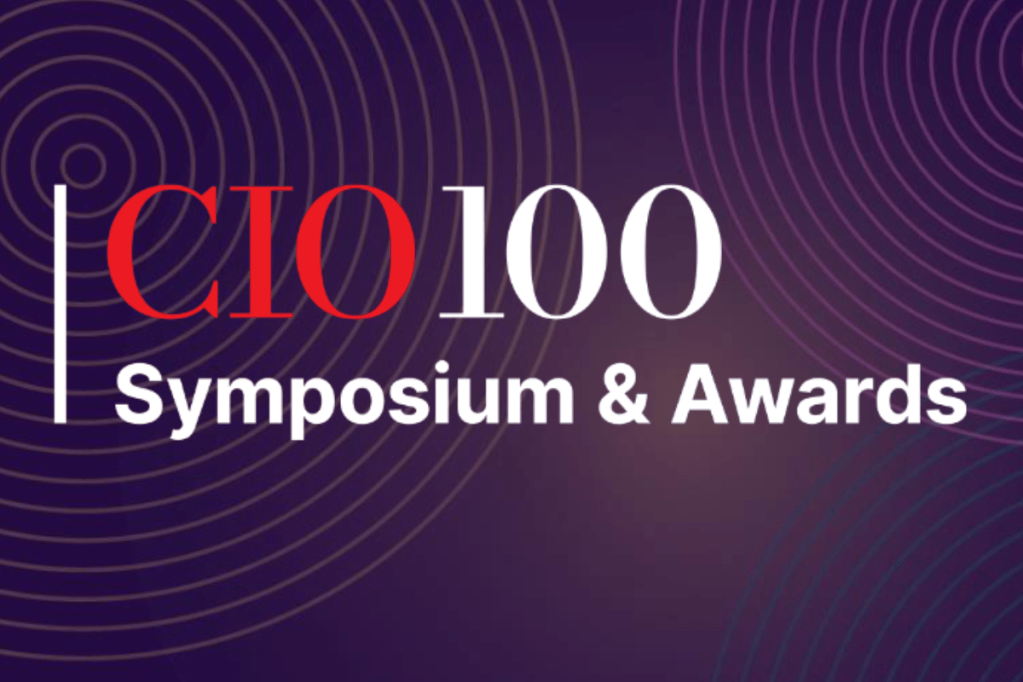
Perhaps more than ever, CIOs are showing their C-suite colleagues how technology can transform their organizations and deliver tangible — and significant — business value.
Indeed, leading IT execs are making bold moves, seizing on artificial intelligence, blockchain, data, and analytics to remake back-end processes, personalize customer interactions, and drive efficiencies.
The annual CIO 100 Awards highlight such innovations and the leadership required to successfully implement both the technologies that enable change and the change itself.
Like every year, the 100 projects on the 2025 CIO 100 list come from a range of industries and utilize a host of technologies to achieve their goals.
But they all have one major thing in common: They address significant organizational needs — whether that involves solving an intractable problem, capitalizing on a transformative opportunity, creating a new business endeavor, or delivering a competitive advantage.
The following 10 award-winning projects serve as representatives for the 2025 honorees, showcasing the power of IT in the enterprise today and the ingenuity of modern CIOs and their teams.
| Organization | Project | IT Leader |
| Adobe | Adobe Praxis | Cynthia Stoddard, SVP & CIO, Adobe Technology Services (ATS) |
| Aflac | Customer 360 | Tim Callahan, SVP, CIO, and Global CISO |
| Albertsons | Sincerely Health — Health Shopping and Nutrition Insights | Anuj Dhanda, EVP and Chief Technology and Transformation Officer |
| The Boston Consulting Group | Deckster | Merim Becirovic, CIO, Managing Director and Partner |
| Casey’s General Stores | Store Virtualization/Edge Compute | Sanjeev Satturu, CIO |
| Chemonics International | Global Safety and Security Portal | Anne Kottmeier, CIO |
| Edifecs | Tech for Tomorrow: A Sustainable IT Journey | Ravi Soin, CIO |
| PepsiCo | SalesLead+ | Shyam Venkat, Chief Digital and Information Officer |
| Ulta Beauty | Project SOAR (Strengthen, Optimize, Accelerate, Renew) | Mike Maresca, Chief Technology & Information Officer |
| Verizon | Just-in-Time High Bay | Mike Maresca, Chief Technology & Information Officer |
Adobe delivers fast, tailored training at scale with gen AI
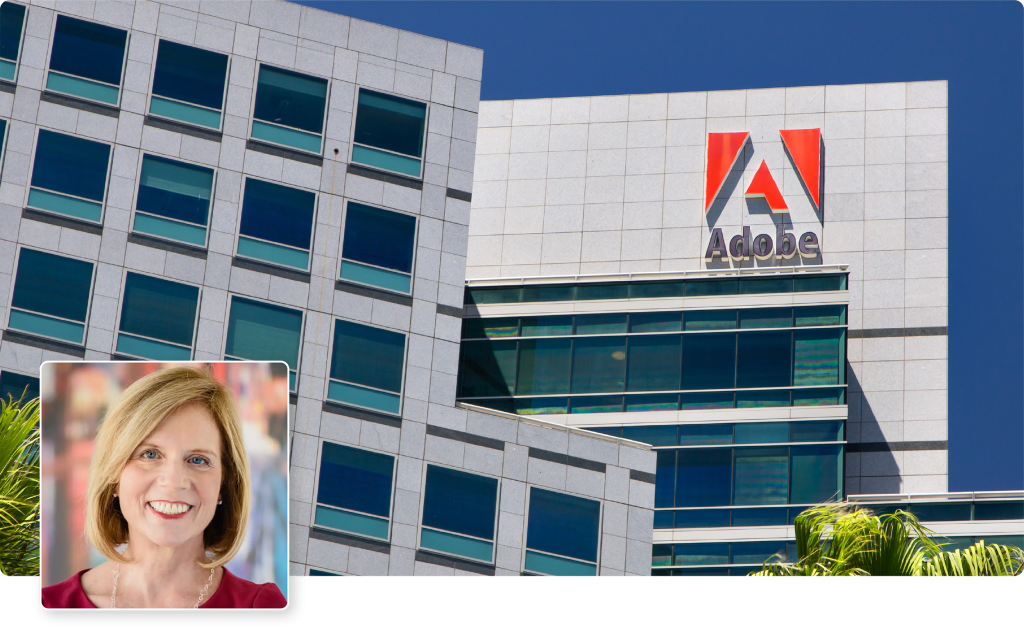
Shutterstock / Adobe
Organization: Adobe
Project: Adobe Praxis
IT leader: Cynthia Stoddard, SVP & CIO, Adobe Technology Services (ATS)
Adobe executives faced a challenge: how to get busy workers trained on a newly implemented technology when many were resistant.
The answer? Praxis, a homemade, first-of-its-kind generative AI learning platform that delivers pinpoint coaching to users.
After implementing Microsoft Dynamics 365, many workers skipped training, instead flooding support channels in frustration. Tim Garippa, head of ATS’s Transformation and Innovation Office, understood why.
“As we navigated the transition to Microsoft Dynamics 365, we knew that our sales team shouldn’t have to slow down. Our salespeople needed to stay focused on calls, client meetings, and closing deals rather than lengthy, click-through training courses,” he says. “Time away from a seller’s normal tasks risks losing revenue, so protecting the seller’s productivity is essential, which is why we developed Adobe Praxis.”
Praxis, he explains, “delivers curated information directly to our employees for fast, intuitive learning that is tailored to each person’s role.”
Praxis is built on retrieval augmented generation (RAG) architecture that combines multiple large language models (LLMs) with internal organizational data and knowledge assets, enabling Praxis to identify relevant source documents and generate coherent, contextually grounded responses.
The custom LLM is rooted in a bounded enablement data territory comprising Adobe-specific field readiness and enablement data, which prevents hallucinations. Moreover, Praxis can properly fact-check every answer, making it 97% accurate.
Its front end is a simple chatbot where users can ask questions (in 100-plus languages) and get accurate answers supported by step-by-step guides, tutorials, video trainings, and more.
Praxis is fully deployed and is now being expanded.
Aflac modernizes customer care to deliver empathetic service across multiple channels
Organization: Aflac
Project: Customer 360
IT leader: Tim Callahan, SVP, CIO and Global CISO
Aflac aims to be a steadfast partner to its policyholders by providing support and assurance. Customer 360 helps the company do that, enabling Aflac customer care specialists to spend less time navigating systems and more time focusing on people.
Designed for phone-based interaction, the company’s previous call center system was inefficient, requiring manual work-arounds. It also lacked integration with the disparate systems that held data needed to service callers. As a result, it created a poor experience for both employees and customers, stymieing the company’s ability to provide policyholders with personalized, empathetic support.
Customer 360, on the other hand, is a scalable technology platform that empowers agents to deliver consistent service across multiple channels.
“Customer 360 transformed how we serve our customers when they need us most by implementing a unified, intelligent, easy-to-use solution that has improved our call center metrics, from call handle time to employee satisfaction,” says Tim Callahan, SVP, CIO, and global CISO. “It has been a cornerstone achievement to improve service to our customers while significantly improving productivity, efficiency, and customer/employee satisfaction.”
The platform consolidates reams of customer data into a single, accessible interface, enabling agents to better understand a customer’s journey so they can deliver more informed responses — and do so more quickly. It also automates routine tasks, allowing agents to focus on more complex, meaningful interactions. And it efficiently and effectively supports the range of communication channels used today.
Additionally, the platform offers agents real-time insights and next-best-action recommendations, tailored to each customer’s needs.
Albertsons turns to IT to boost customers’ healthy habits, engagement, and sales
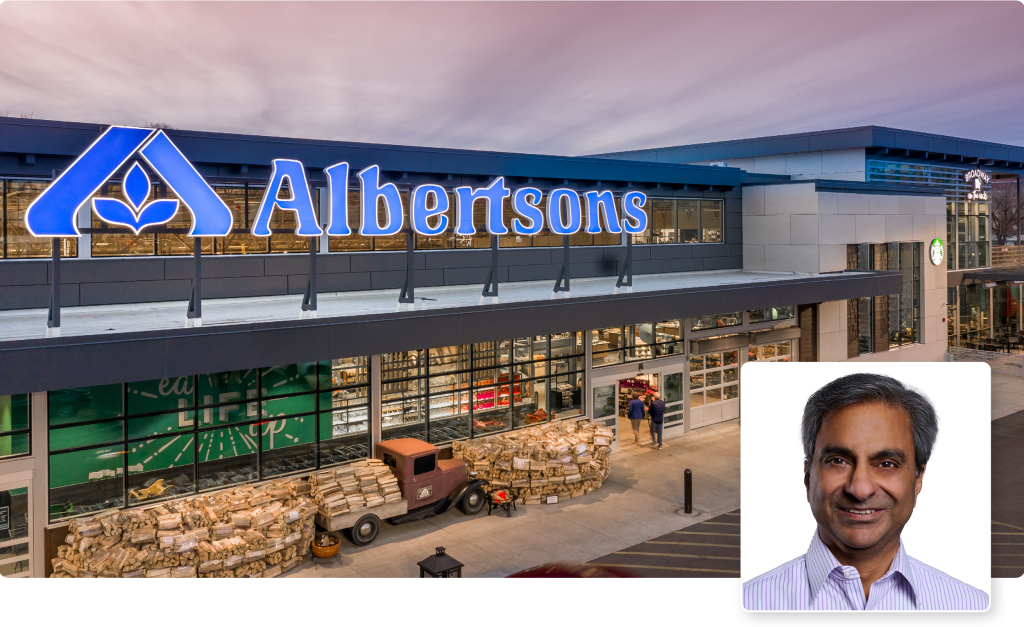
Albertsons
Organization: Albertsons
Project: Sincerely Health — Health Shopping and Nutrition Insights
IT leader: Anuj Dhanda, EVP and Chief Technology and Transformation Officer
Albertsons, a food and drug retailer with more than 2,200 stores and 1,726 pharmacies, sees good nutrition as both a preventive and therapeutic healthcare tool. As such, the company sought to make healthy eating accessible and rewarding for its 40 million customers by offering personalized nutrition advice, educational resources, and access to healthy food options — and it turned to technology to do so.
Sincerely Health, a health shopping and nutrition insights application, leverages data science models to deliver personalized nutrition insights. The insights combine USDA guidelines with Albertsons’ proprietary algorithms to identify how healthy an item is on a scale of 1-100 and its respective composition across the food groups.
To do all this, the IT team had to unify and curate data, and build mechanisms to ensure compliance with privacy regulations.
“They solved complex and multifaceted challenges of navigating the personal nature of health in a household-based loyalty program,” says Irina Pelphrey, Albertson’s group vice president of health. “That presented unique challenges with back-end design to integrate numerous data points and solutions in one place: anything from processing millions of user-generated events across grocery shopping, activity tracking, interface interactions, and more. All of that had to be done with scalability and efficiency in mind as we made the respect for and protection of customer privacy the foundation of our design.”
Customers who sign up for the free Sincerely Health app can set nutrition goals and find products that help them stay on track while redeeming rewards for healthy choices through the platform, which has demonstrated significant adoption and value. Sincerely Health expanded its customer base from 200,000 to 1 million within one 12-month period. In addition, it has best-in-class customer engagement (against lifestyle and behavior change benchmarks). And it has helped boost grocery sales.
BCG puts gen AI to work on slide deck creation, yielding significant efficiency gains
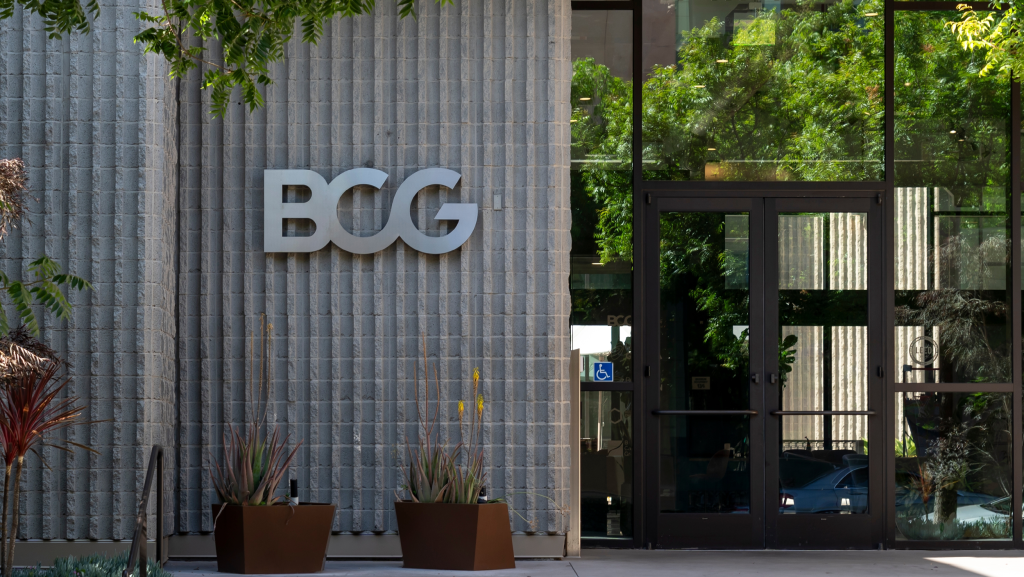
JHVEPhoto / Shutterstock
Organization: The Boston Consulting Group
Project: Deckster
IT leader: Merim Becirovic, CIO, Managing Director and Partner
Boston Consulting Group creates nearly 35 million slides annually, making the firm among the top 1% of PowerPoint users globally.
The firm views slide decks as essential tools to structure, visualize, and deliver insights — and to facilitate decision-making and drive transformative business impact. As a result, employees spend significant work time on slide creation.
BCG business and tech leaders believed generative AI could help lighten that workload without compromising quality, but when they looked at the tools on the market, none could automate complex layouts with charts, tables, and text, so they developed their own solution.
Deckster covers the entire slide-creation lifecycle, including slide generation, content retrieval, translation, and slide review, all while offering multimodal capabilities.
Leveraging OpenAI’s API alongside a curated library of BCG templates, Deckster produces fully formatted, client-ready slides in just three seconds — a dramatic improvement from the typical 15 minutes. Slide translation takes just 15 seconds, and editing content has been reduced to two to three minutes.
Additionally, BCG designed Deckster to ensure ethical AI usage, robust data security, and client protection.
To promote adoption, project leaders leaned on executive sponsorship, cross-department collaboration, targeted training, and grassroots advocacy. That work paid off, as Deckster now has more than 10,000 monthly users and is available to all 32,000 BCG employees.
Merim Becirovic, CIO, managing director and partner at BCG, says that success gives BCG a foundation on which to build.
“We’re continuing to evolve this. As people start to use it more, people are asking for more capabilities and we see ways to improve it,” he says. “The challenges now are, how do we continue to help everyone so they can be successful using it and how do we help each of them in their own way.”
Edge compute helps Casey’s boost company resiliency, efficiency
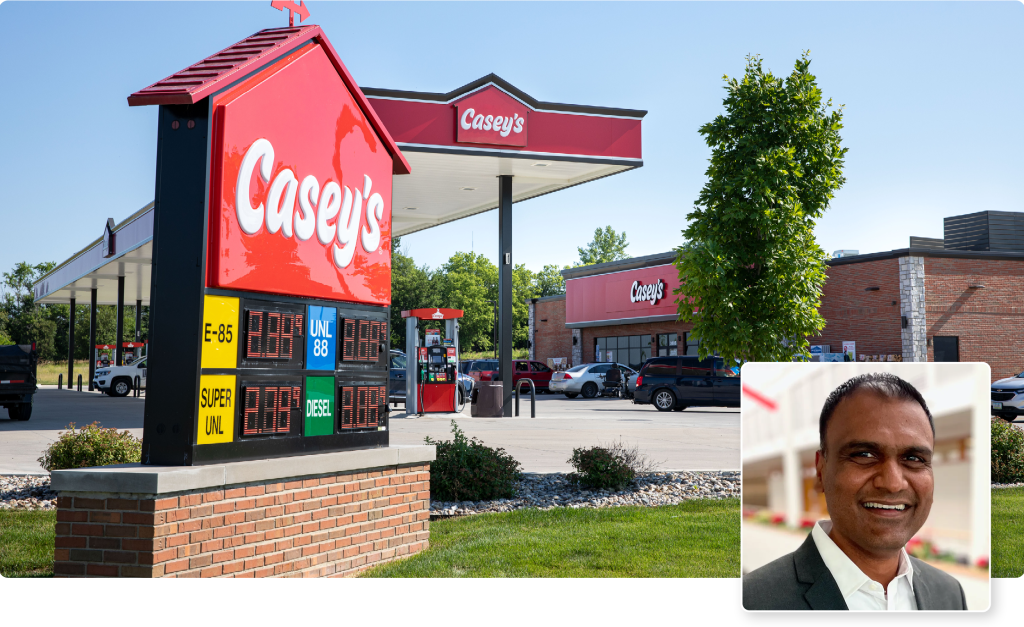
Casey’s
Organization: Casey’s General Stores
Project: Store Virtualization/Edge Compute
IT leader: Sanjeev Satturu, CIO
The tech team at Casey’s General Stores delivered a new level of resiliency with its innovative edge compute project.
The team, driven by its mission to transform the IT infrastructure across the company’s more than 2,900 locations, deployed localized compute resources and integrated those resources with IoT devices within each store.
This allows applications and services, including critical apps, to run locally, ensuring seamless operations even when internet connectivity is compromised. The edge compute resources also reduce latency and ensure near-real-time responses — essential for modern retail operations.
The project also allows for centralized management and monitoring of store applications, generating proactive alerts, reducing troubleshooting time, and avoiding costly on-site support visits.
“Edge has delivered measurable business results that underscore its value to Casey’s,” says CIO Sanjeev Satturu. “The project has not only achieved significant cost savings and operational efficiencies but also enhanced security, improved guest experience, and supported the company’s strategic goals. These results demonstrate the transformative impact of edge compute on Casey’s operations and its potential to drive continued growth and innovation. Edge compute is setting the stage for future advancements in AI across our retail ecosystem.”
The project was not without challenges. One of the biggest was integrating the new edge technology with local legacy systems. To tackle this, IT adopted a phased approach that included a comprehensive assessment of existing infrastructure, a detailed integration plan, and a pilot program to test the integration process and identify potential issues.
The approach worked, with the project delivered four months ahead of schedule. In addition to reducing complexity and costs, the project has improved device and store uptime, and it enables rapid setup of new locations.
Chemonics portal helps keep workers safe in challenging geopolitical environments
Organization: Chemonics International
Project: Global Safety and Security Portal
IT leader: Anne Kottmeier, CIO
Chemonics implements sustainable development projects in the world’s most complex social, natural, and political environments, including Syria, Ukraine, and Haiti. It has operations in more than 100 countries — a global reach that makes tracking teammates challenging.
Yet having up-to-date information about individuals and facilities is essential for ensuring the safety and security of Chemonics personnel. Having the ability to track lessons-learned from past incidents and tools to plan for future safety situations are critical, too.
The company’s Global Safety and Security Portal enables it to do all that.
The portal is an interactive application that centralizes necessary data and enables company officials to stay ahead of concerns by tracking safety and security audits and compliance.
“Duty of care for our staff is No. 1,” says Evan Steinberg, acting global security director. “But our staff [members] have different benefits and requirements based on contracts, and so we need to know, for example, who might need an extra level of care for evacuation, who has restrictions due to visa, or who has family in that country that needs evacuation, too. Now we’re able to go to one place and know all those details are there.”
That wasn’t always the case.
CIO Anne Kottmeier says the portal replaces a complex process the company previously used to track required information. That old process used various apps and spreadsheets, requiring significant manual work to piece together needed data.
The new portal streamlines data collection in an easy-to-use app that can be quickly deployed to new projects anywhere in the world. The portal also features a GPS module so that company leaders can pinpoint locations on a map within the application and get exact GPS coordinates for people and assets, a critical feature to keep staff safe in constantly changing environments.
Edifecs finds business value in IT sustainability efforts
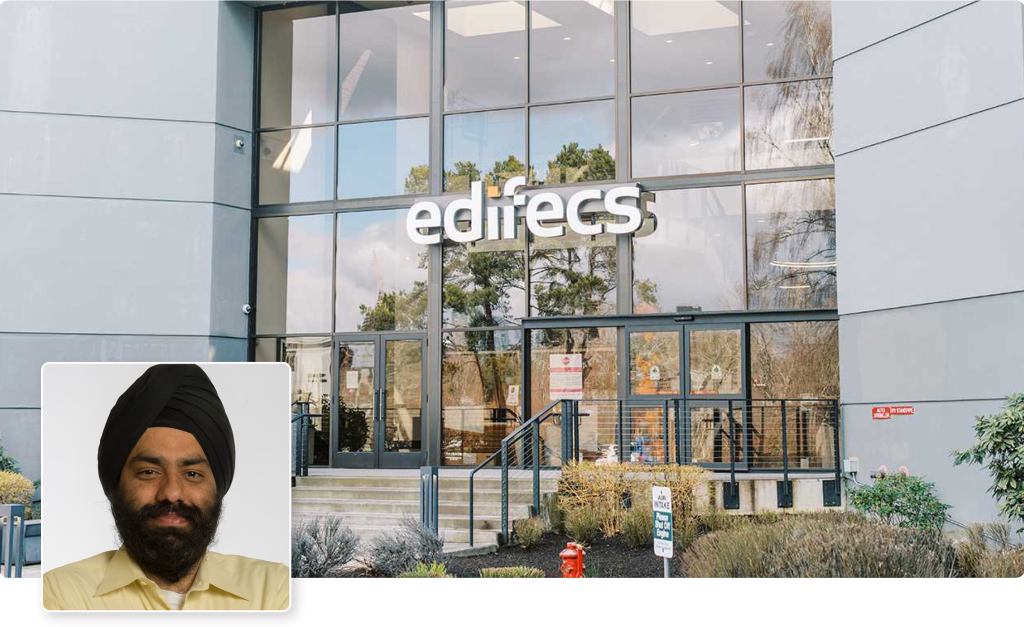
Edifecs
Organization: Edifecs
Project: Tech for Tomorrow: A Sustainable IT Journey
IT leader: Ravi Soin, CIO
Edifecs had a twofold objective: Reduce its environmental footprint and improve its operational efficiency. Tech for Tomorrow, its sustainable IT journey, delivered on both fronts.
To achieve its objectives, the IT team optimized its data centers by leveraging technologies such as Amazon Elastic Kubernetes Service (EKS) and OpenShift clusters for consolidating servers to reduce the number of physical data center locations from five to two. That consolidation in turn streamlined operations and significantly reduced energy consumption and physical space requirements. The implementation of energy-efficient technologies such as virtualization and advanced cooling systems further reduced energy usage and improved operational efficiency.
In parallel, IT transitioned to a hybrid cloud infrastructure through its “SaaSification Drive,” a shift that cut costs, enabled additional optimization of resource usage, and provided greater flexibility, resiliency, and scalability for future growth.
The IT team also partnered with certified e-waste recycling vendors that specialize in refurbishing and recycling electronic devices to ensure all discarded equipment was handled in compliance with environmental standards. Additionally, it collaborated with the RoundGlass Foundation to create Digital Community Centers in rural India, where the company donated older but functional equipment such as laptops, routers, and monitors, thereby helping reduce e-waste while also positively impacting the lives of children and families in 22 villages and urban slums.
Furthermore, IT prioritized sustainable procurement practices, ensuring all new IT assets are energy-efficient and sourced from eco-conscious suppliers.
CIO Ravi Soin says the initiative springs from the company’s corporate values and philosophy, which center on creating efficiencies, reducing waste, and supporting sustainable practices — which all translate to more value for the company’s customers.
“Sustainability for us is really in our DNA,” he says.
PepsiCo takes complexity out of customer visits with intelligent ‘single pane of glass’

PepsiCo / Unsplash
Organization: PepsiCo
Project: SalesLead+
IT leader: Shyam Venkat, Chief Digital and Information Officer
Frito-Lay North America, a subsidiary of PepsiCo, has a go-to-market strategy centered around direct-store delivery. That has FLNA conducting more than 500,000 weekly customer visits.
To support that strategy, the company used more than two dozen fragmented apps, leading to complexity, data inaccuracies, inefficiencies, and limited visibility into team schedules, coverage gaps, and execution exceptions.
So the IT team created SalesLead+, a transformative unified application that addresses the leadership needs of field sales managers, ensuring effective workforce management and enhanced customer satisfaction.
Madhav Mekala, senior director of software engineering, says SalesLead+ is part of a larger transformation focused on giving leaders the right tools at the right moment.
SalesLead+ gives mangers “full insights into their team, so they know where they are, they know if someone is delayed, they get alerts,” he says. “There’s a lot of intelligence in there, and the intelligence is pushed to them. We’re able to push real-time information and real-time insights to them and give them that single pane of glass so they can take action.”
The heart of SalesLead+ is the innovative Location Insights framework, a reusable, extensible platform that integrates and processes data from internal and external systems to generate actionable intelligence.
The framework aggregates location-related data, including geofences, transaction documents, and employee schedules, processes it through a modular design, and then distributes it via APIs to enable real-time insights.
The Team Visibility feature, powered by the Location Insights framework, synthesizes data from disparate sources, thereby addressing critical gaps in oversight and responsiveness. For example, the feature provides real-time tracking of intra-day activities and offers recommendations for next best actions, ensuring agility in adapting to dynamic market demands.
Mekala says the SalesLead+ platform has delivered transformative business value by improving leadership efficiency, team performance, and operational excellence.
Ulta Beauty future-proofs its business with comprehensive IT modernization
Organization: Ulta Beauty
Project: Project SOAR (Strengthen, Optimize, Accelerate, Renew)
IT leader: Mike Maresca, Chief Technology & Information Officer
Ulta Beauty launched Project SOAR (Strengthen, Optimize, Accelerate, Renew), the largest IT-driven transformation in its history, to modernize the “central nervous system” of its operations.
Executives had big expectations for SOAR, believing it to be the cornerstone for the retailer’s growth, innovation, and agility strategy. The multiyear initiative centered on migrating core business functions from an outdated ERP platform to SAP S/4HANA. The transformation aimed to eliminate fragmented, manual processes and to enable automation and real-time insights, both necessary for long-term growth and operational excellence.
SOAR delivered, modernizing business processes, including finance, procurement, inventory management, and merchandising. It enabled automation for tasks such as vendor invoice matching and cash reconciliation. It streamlined and improved real-time visibility into inventory updates, thereby improving operational efficiency. And it empowered store associates to better serve customers through enhanced product lookups and improved customer personalization, among other capabilities.
SOAR also facilitated the opening of seven distribution centers and strengthened supply chain capabilities, ensuring products reach stores and guests more efficiently. And the transition to cloud-based systems helped enabled real-time information sharing and operational agility.
“Project SOAR was about future-proofing Ulta Beauty,” says CTIO Mike Maresca.
“SOAR was transformative in every sense — it touched nearly every part of our business,” he explains. “SOAR changed the way our teams work and unlocked new ways that we can deliver a premium experience for our guests, like enabling ship-from-store capabilities by having real-time visibility into our inventory and accelerating our personalization efforts through AI. This was more than a technology project. It was truly a company-wide evolution.”
Verizon enlists blockchain to overhaul supply chain operations
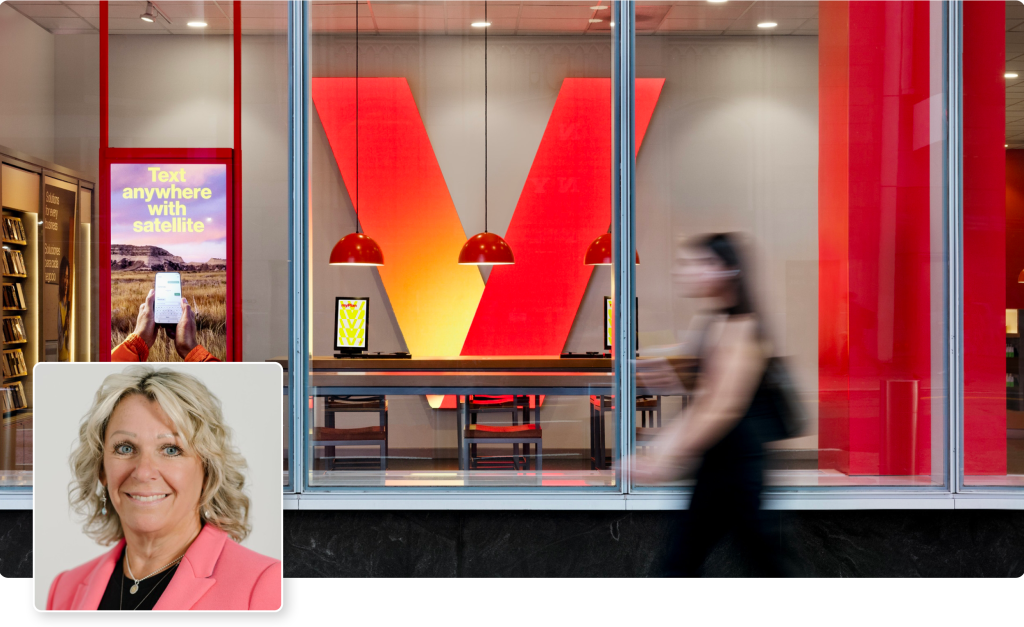
Verizon
Organization: Verizon — Corporate Systems Group (CSG)
Project: Just-in-Time High Bay
IT leader: Jane Connell, SVP and CIO, Corporate Systems, Strategy & Transformation
Verizon’s strategy is built on an “only own what we sell” principle. That principle requires real-time unit-level tracking and full supply chain transparency. But the company’s technology didn’t enable that until recently.
Verizon’s supply chains had siloed operations, leading to poor transparency and poor coordination among partners. That lack of visibility hindered decision-making and responsiveness. It also increased the risk of stockouts, overstocking, and inventory loss.
To solve those issues, Verizon’s Corporate Systems Group designed and implemented a blockchain-powered interorganizational collaboration platform.
“We wanted to create agility and new capabilities. We also want to optimize and remove friction,” says Jane Connell, SVP and CIO of Corporate Systems, Strategy and Transformation.
“Now we can all see the same thing and conduct business very transparently and create one source of truth so we can ideate. It allows partnership on both sides of the equation,” she adds, noting that the solution creates a dynamic supply chain that can scale and support collaboration.
The platform employs a shared ledger and unified inventory management model. The solution coordinates each organization’s roles and orchestrates supply chain activities through a unified model that enforces embedded business agreements autonomously. Its real-time, cross-company visibility enables continuous cycle counting for rapid cross-partner error mitigation and creates the ability to uncover insights and emerging business opportunities.
It features immutable traceability, unified inventory management encapsulated in a lifecycle model, automated business rules enforcement, interoperability and collaboration, and data-driven insights.
Furthermore, each organization can integrate the shared ledger data into their existing systems without requiring direct integration with trading partners.
This solution transformed the traditional supply chain to quickly adapt a new procurement strategy of “own what we sell” that has resulted in significant capital cost savings and greater efficiencies, Connell says.
More US CIO 100 Award winners
The following articles provide an in-depth look at these and more of our 2025 US CIO 100 Award winning projects:
• Avery Dennison: Avery Dennison takes culture-first approach to AI transformation
Nick Colisto, SVP and CIO
• Metropolitan Washington Airports Authority: Custom AI models help MWAA deliver better airport experiences
Goutam Kundu, EVP and CIDO
• Hakkoda Labs: Hakkoda Labs adds homegrown AI agent to its data team
Patrick Buell, co-founder and chief innovation officer
• Automation Anywhere: Automation Anywhere buys its own AI agent vision
Kapil Vyas, SVP for IT
• Accenture: Accenture reimagines IT operations with agentic AI
Rajendra Prasad, CIO and asset engineering officer
• UPS: UPS transforms air cargo operations with data, AI
Alp Kayabasi, president of IT
• FMC Corp.: FMC brings more predictability to farming with pest control mobile app
Andi Le, CDO
• Atlantic Health System: How Atlantic Health’s retrofit eliminates specimen management error rates
Sunil Dadlani, EVP, CIDO, and CISO

